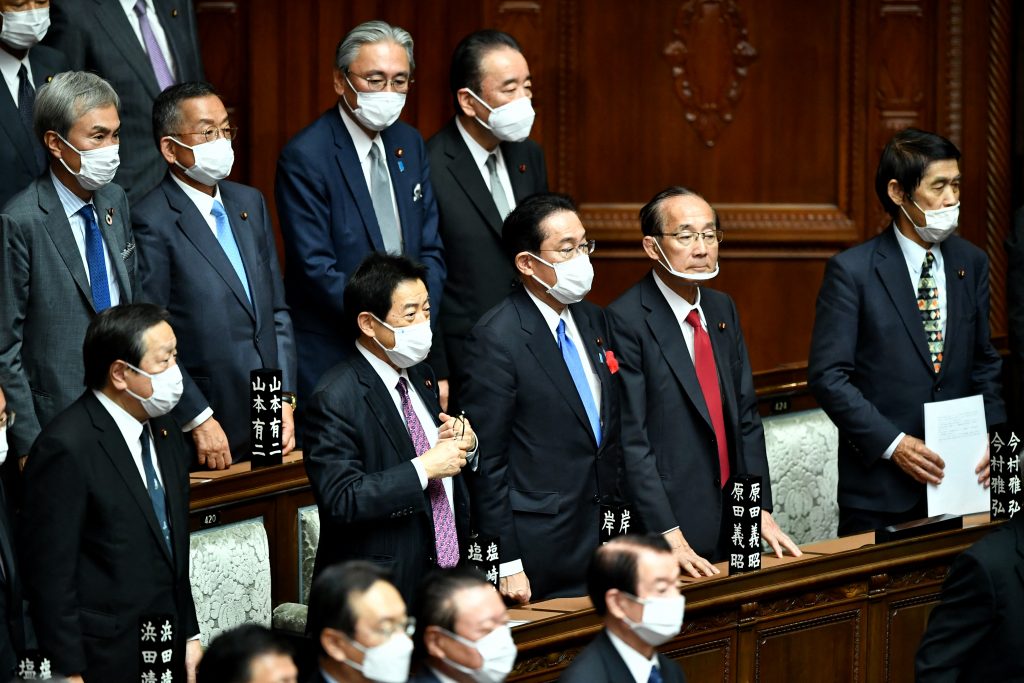
- ARAB NEWS
- 01 Aug 2025

TOKYO: Japanese political parties have pledged big spending to voters ahead of the July 10 House of Councillors election, while they are short on how to finance such measures.
The Liberal Democratic Party-led ruling bloc has promised to take measures to address soaring prices and revive the economy hurt by the novel coronavirus pandemic, putting spending before fiscal consolidation.
Some opposition parties, for their part, advocate aggressive spending dependent on government bond issuance. Many call for scrapping or reducing the consumption tax.
What is lacking are discussions on ways to secure financial resources, including how to put a lid on Japan’s ballooning public debt.
The LDP says it will boost the country’s defense spending in its campaign promises for the election for the upper chamber of the Diet, Japan’s parliament.
To promote growth in the decarbonization sector, the party plans to secure about 20 trillion yen in funds through a new government bond, tentatively called GX economic transition bond.
The LDP has also promised to “double the state budget in the future” for measures to combat the country’s decreasing births and support child-rearing households.
Komeito, the LDP’s coalition partner, aims to increase the lump-sum childbirth allowance and make medical services free of charge for children up to high school age.
In the opposition bloc, the Democratic Party for the People and Reiwa Shinsengumi are pushing aggressive fiscal policies through the issuance of government bonds.
The DPFP calls for creating a special government bond for education and doubling the annual budget related to education and science and technology to about 10 trillion yen.
The main opposition Constitutional Democratic Party of Japan says it will double the budget related to children and child-rearing to an equivalent of over 3 pct of the country’s gross domestic product.
Nippon Ishin no Kai (Japan Innovation Party) aims to make education completely free of charge and birth-related expenses effectively free of charge.
The ruling and opposition sides, however, do not say whether these measures are financially practicable or how to redeem the vast amount of new debt that they say should be issued.
The outstanding amount of Japanese government bonds is expected to reach 1,029 trillion yen by the end of March 2023.
The fiscal situation has worsened even further due to the prolonged fight against the pandemic.
Meanwhile, the government dropped its target of achieving a primary budget surplus at the central and local governments in fiscal 2025 from its annual economic and fiscal policy guidelines, adopted in June.
The LDP’s election platform says that the party will “realize economic growth and achieve progress toward fiscal soundness so that citizens will feel secure about their future lives.” Komeito has pledged to attain both economic recovery and fiscal consolidation.
But neither party says how to fulfill the promises.
The Japanese Communist Party stresses that it will “not take a position that anything can be done through the unrestrained issuance of government bonds.”
The party hopes to raise the corporate tax and take other steps to secure 19 trillion yen in financial resources so that it can put into practice key election pledges including a consumption tax cut.
The CDP and the Social Democratic Party have proposed higher taxes on large companies and the wealthy, while the NHK Party argues that taxes and social insurance premiums should be lowered and that government spending also should be reduced.
A medium- to long-term fiscal estimate released by the Cabinet Office in January claimed that a primary budget surplus is attainable in fiscal 2025.
But many observers say that the estimate is too optimistic as it is based on an unrealistic scenario that the country will continue to post high nominal economic growth of over 3 pct.
Nippon Ishin calls for setting a realistic deadline for achieving a primary surplus, while Reiwa Shinsengumi advocates scrapping the target itself.
The CDP and the DPFP aim for the establishment of a neutral, independent body that makes economic and fiscal estimates.
JIJI Press